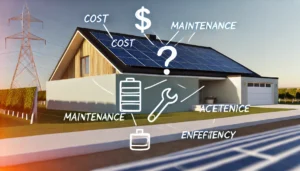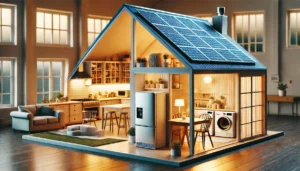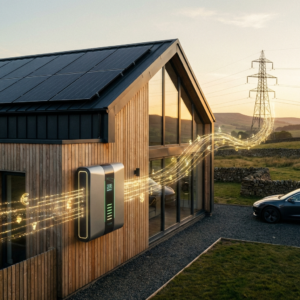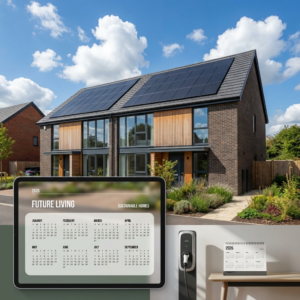Discover the Versatility of Air-to-Air Heat Pumps: Heating and Cooling for the UK
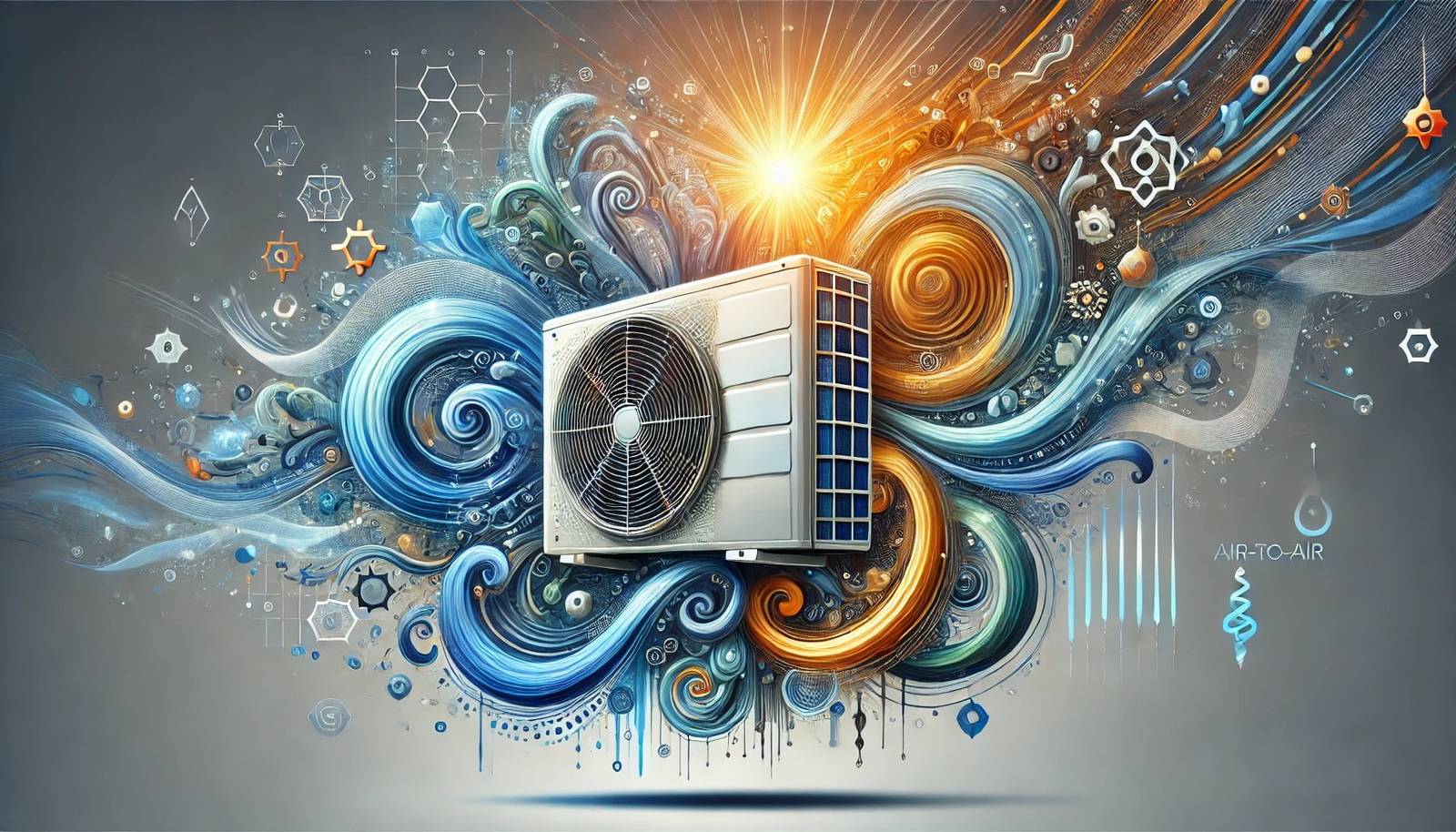
When most people think of air conditioning (AC), they imagine a device that cools homes in hot, tropical climates. Installing a domestic AC in a colder climate, like in the UK, isn’t everyone’s first thought. And this is where most people could be missing out. Modern air-to-air heat pumps, often called AC units, can do much more than just cool. These systems are highly efficient and capable of both heating, cooling, and dehumidifying your home, making them an excellent option even in the UK’s temperate climate.
What is an Air-to-Air Heat Pump?
An air-to-air heat pump is a versatile home heating and cooling system that transfers heat from the outside air to the air inside your home. It works through a series of fan coil units, or blowers, that distribute warm or cool air throughout your living spaces. This technology can provide heating during the winter and cooling during the summer, ensuring year-round comfort (Energy Saving Trust).
Why Weren’t They Popular in the UK?
Historically, air-to-air heat pumps were not widely adopted in the UK for several reasons:
- Perception of Inefficiency in Mild Climates: Many believed that air-to-air heat pumps wouldn’t be efficient in the UK’s moderate climate, especially for heating during the colder months (Reddit). Cold external temperature can indeed make heat pumps less efficient, but the performance degradation starts at -5 and will still be around 200% at -7. With its 5.29°C average winter temperature (Met Office), the UK climate is well within the efficient operating range for air-to-air heat pumps to deliver excellent efficiency in winter.
- Housing Stock Issues: UK homes are often older and less insulated compared to those in other parts of Europe, making them less suitable for heat pumps without significant retrofitting (The Eco Experts).
- Cultural Preferences: Traditional gas boilers and radiator systems have been the norm for decades, and there has been resistance to change (The Eco Experts).
Changing Perspectives and Benefits
Recent advancements in heat pump technology, combined with growing environmental concerns and rising energy costs, have started to change these perceptions. Here are some key benefits of air-to-air heat pumps:
- Energy Efficiency: Air-to-air heat pumps are highly efficient, often achieving 300-400% efficiencies. This means they can produce three to four times more energy than they consume, leading to significant energy savings (Energy Saving Trust).
- Year-Round Comfort: These systems provide heating and cooling, making them suitable for the UK’s variable weather. As summers become warmer, the cooling function becomes increasingly valuable.
- Environmental Impact: Heat pumps use electricity rather than fossil fuels, reducing carbon emissions and helping to combat climate change (Reddit).
Economic Viability
While the initial cost of installing an air-to-air heat pump can be higher than traditional systems, the long-term savings on energy bills make them an economically sound investment. Additionally, the UK government offers incentives to encourage the adoption of heat pumps, further offsetting the initial costs (The Eco Experts) (Energy Saving Trust).
Practical Considerations
- Insulation Improvements: Improving home insulation is essential for optimal performance. Simple measures like double glazing and cavity wall insulation can make a significant difference.
- Space Requirements: Air-to-air heat pumps require space for an external unit and internal blowers or ducting. This can be a consideration in densely built areas or smaller homes
- Heating Water: Air-to-air heat pumps do not heat water for domestic use. Homeowners must consider additional solutions like electric immersion heaters or other water heating systems (Energy Saving Trust).
Conclusion
Air-to-air heat pumps are a versatile and efficient solution for heating and cooling, suitable for the UK’s climate. This technology allows homeowners to enjoy year-round comfort, reduce their environmental impact, and save on energy bills. With government incentives and technological advancements, now is a great time to consider making the switch.


